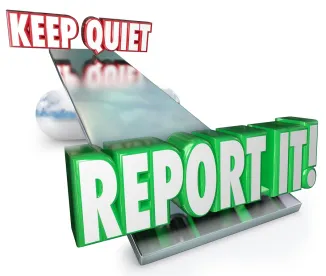A recent enforcement action by the Department of State for alleged violations of the International Traffic in Arms Regulations (ITAR) yields important lessons for exporters with respect to the necessity of appointing qualified export compliance personnel and the value in immediately submitting voluntary disclosures of export violations upon their discovery.
In February 2019, Darling Industries, Inc. (Darling) entered into an 18-month consent agreement with the Department of State, Directorate of Defense Trade Controls (DDTC) to settle alleged ITAR violations committed by Darling’s subsidiary, R.E. Darling Co., Inc. (R.E. Darling), relating to unauthorized exports of defense articles, including ITAR-controlled technical data, the unauthorized furnishing of defense services, and the failure to appoint a qualified Empowered Official. Under the terms of the consent agreement, Darling agreed to pay a fine of $400,000, $200,000 of which was suspended on the condition that Darling apply the amount to remedial compliance measures, which include designating an Internal Special Compliance Officer and undertaking an export control classification review of all items manufactured by the company.
According to the consent agreement, R.E. Darling, a manufacturer and exporter of specialty fabricated rubber and composite products, became aware of the violations as the result of a compliance program review conducted by an outside consulting firm that uncovered “decades of systematic, reoccurring violations” of the ITAR. R.E. Darling disclosed to DDTC that the company had exported, without authorization, thousands of pounds of ethylene propylene diene monomer compound (EPDM), a Kevlar-filled raw material used as a missile case insulator and missile motor insulator, as well as related technical data and defense services, to an aerospace company in Canada for the production of rocket motors for end use by the National Aeronautics and Space Administration (NASA). The sales associate handling R.E. Darling’s exports of EPDM to the Canadian aerospace company believed that the compound was commercial and exported the EPDM to Canada as “No License Required” under the Department of Commerce’s Export Administration Regulations (EAR). R.E. Darling also disclosed that it had exported without authorization oxygen breathing hoses and components to several countries for end use on military aircraft. The sales staff responsible for exporting the hoses were not aware that the products were ITAR controlled and had no ITAR compliance training.
Darling’s consent agreement with DDTC highlights the perils of appointing an unqualified Empowered Official (EO). The ITAR requires companies that manufacture or export defense articles to appoint one or more EOs to oversee their ITAR-related activities; among other requirements, an EO must be in a position of authority for policy or management within the company and must understand the provisions and requirements of export control statutes and regulations as well as the potential civil, criminal, and administrative penalties that can result from export violations. DDTC’s proposed charging letter states that R.E. Darling’s EO “was not in a position of having authority for policy or management,” and, because R.E. Darling did not provide the EO any ITAR training, the EO “did not understand the provisions and requirements of the various export statutes and regulations”. The Darling consent agreement makes clear that DDTC-registered companies must appoint EOs with adequate authority and export-related expertise and cannot satisfy their obligations under the ITAR merely by designating an employee as an EO in title only.
DDTC’s enforcement action against Darling also underscores the value to companies of immediately disclosing the discovery of export violations. The ITAR provides that the Department of State may consider a voluntary disclosure as a mitigating factor in determining any administrative penalties to be imposed, and that companies should notify DDTC immediately after discovering a violation. While Darling did voluntarily disclose the discovery of export violations to DDTC, it submitted the disclosure 22 months after it discovered the violations. Therefore, as the proposed charging letter states, even though the Department of State considered the voluntary disclosure as a mitigating factor, the Department also considered the delayed disclosure as a countervailing factor. Companies that wish to maximize the value of voluntary disclosure as a mitigating factor should disclose violations as soon as they are discovered, or risk incurring greater penalties due to delayed disclosure.
Export control statutes and regulations are complex and subject to frequent changes. To avoid running afoul of the ITAR and risking penalties such as those imposed on Darling – or greater – companies must invest in a culture of compliance by appointing qualified compliance personnel and providing adequate training throughout the organization.




 />i
/>i

